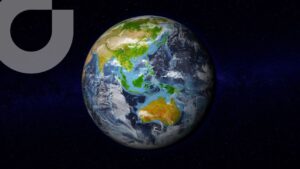We are living in challenging times, reminiscent of the past century’s escalation into war with two world wars. Since then, the world, mainly Europe, has experienced peace and stability for over 60 years, with new generations erasing the memories of the devastating effects of those violent periods. However, the invasion of Ukraine by Russia and the escalating violence of Israel in Palestine presents us with a very different scenario than the one we had grown accustomed to.
Wars are fueled by power struggles, control, and exploiting opponents’ weaknesses. Controlling increasingly limited resources is a source of tension that, if unresolved, exacerbates this risky situation, potentially leading to conflict over control of those resources.
Most rivers are transboundary, without a regulatory framework to rely on, and we see real cases of tension, such as the Nile, where the interests of Egypt and Sudan oppose the construction of a dam in Ethiopia. The Jordan River has been and remains a source of controversy between Israel and Palestine, and the control of marine spaces for their resources is in constant debate, with no stable consensus among many countries.
This year marks the celebration of “Water for Peace.” Under this theme, the importance of water has been highlighted. Therefore, I find it necessary to emphasize the direct interaction of this resource with two Sustainable Development Goals (SDGs): SDG 16—Peace, Justice, and Strong Institutions, and SDG 17—Partnerships for the Goals, to underscore the inevitable global alliance and the consolidation of strong institutions for achieving sustainable development.
As a critical resource, water will ensure agricultural production, industrial development, and the sustainability of cities and regions, fostering competition for the resource when the source is shared. Over 200 rivers worldwide cross borders, and their management is subject to different priorities in their usage by the countries that manage them. Additionally, the contamination of these rivers creates downstream problems, leading to political and social issues that are difficult to manage without an adequate cooperation policy for their equitable use and distribution.
Climate change, with less frequent rainfall, also reduces their flow, exacerbating the problem.
However, throughout history, we have witnessed how the very nature of water has also served as an excellent stimulus for concord and dialogue, even bringing together the most opposing views. Hence, it is essential to manage the entire water cycle well.
Partnerships as the Only Viable Route
Globally, peace, security, and the stability of nations are the key and the solution to the excellent water challenge. While it is true that our planet currently has enough water resources to support global security, this could change if we do not alter our current conceptual approaches to water management. The crux of the matter has always been. It remains the development of a fair and equitable common regulatory framework—a binding standard directive that responds to the need to unify actions in water management.
The benefits of partnerships in this matter are necessary, so they must be achieved through an inclusive, innovative approach at all levels.
The solution through partnerships is the responsibility of all known levels: individual, regional, national, and international, and must be assumed by all societal actors—governments, non-governmental organizations, the private sector, and civil society.
Effective international institutional frameworks must be created to support and protect equitable access to this resource and promote research, development, and innovation. In this regard, public-private partnerships (PPPs) are the solution for states to meet their infrastructure and public service needs with private sector participation.
To achieve this, total government support and strong institutions that guarantee long-term stability and legal security are required. Government support is also crucial to attracting the necessary financing. However, we not only face the misuse of resources by all but also a lack of political will and commitment to address the grand challenge we face at the state level and globally.
All Together: The Great Challenge of the 21st Century
We are facing a water crisis that is socially and politically conditioned, not resulting from the nature of the resource itself but from its management. It is in our hands to change the game’s rules to move forward together and thus ensure global water security.
Therefore, to achieve our goal, it is vitally necessary to implement a global regulatory framework through effective formulas such as public-private partnerships that guarantee prosperity and international peace, especially the will of all because access to water is linked to current global security.







